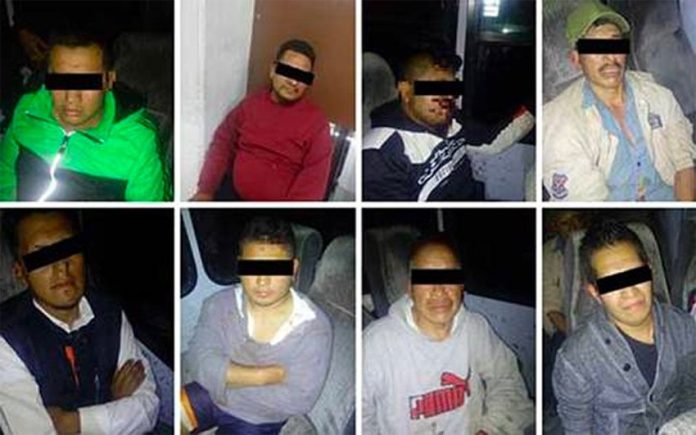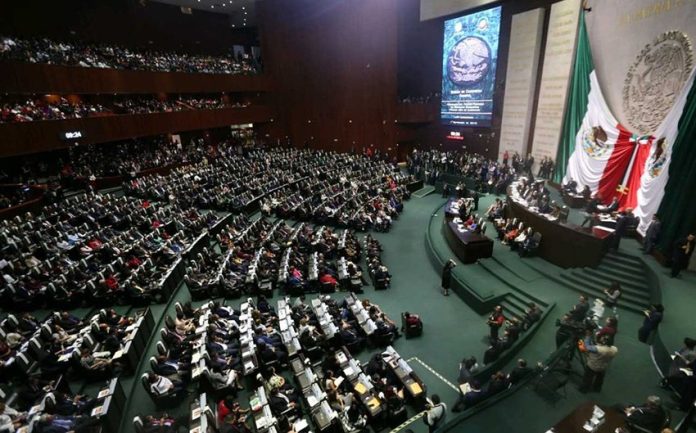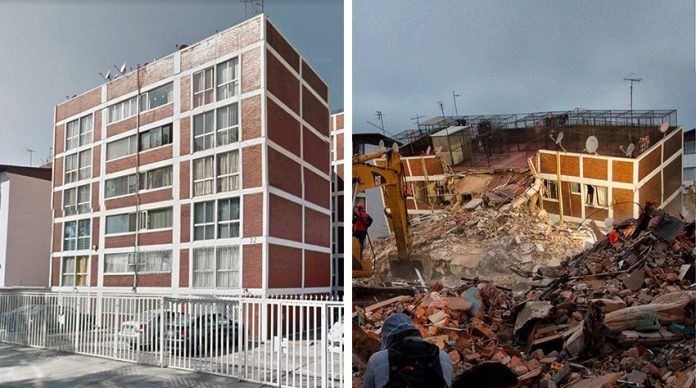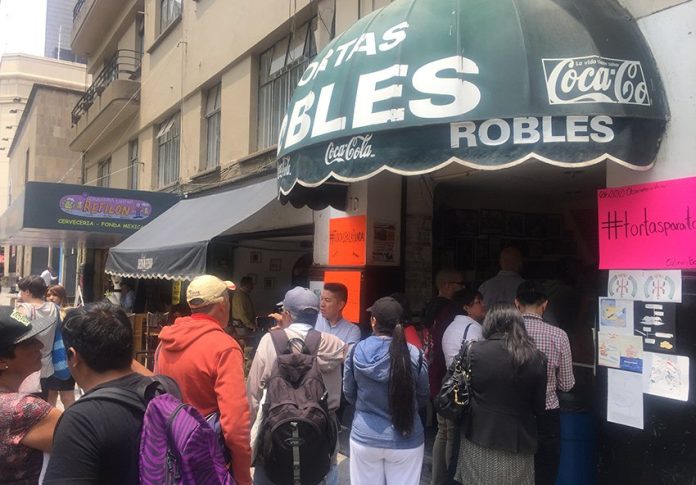“Places like this enrich your time in the historic center,” said Roberto Ramiro as we waited in line to get a free torta from Tortas Robles.
The tortas were being given away as part of a “tortathon” to raise awareness of the eviction of this tiny sandwich shop in downtown Mexico City.
Ramiro told me that he has been coming to this hole-in-the-wall torta place for 20 years. He and his family would come to the city’s downtown area to walk about, enjoy the views and all the vibrancy that the central Alameda promotes and have a torta for lunch.
All in all, it would be an inexpensive but memorable day for the family. Now, Ramiro, 33, brings his son for tortas at the same spot, carrying on the family tradition.
But Tortas Robles faces eviction from its location in the iconic building, Edificio Trevi. Earlier in the year, the Robles family were told that the building in which their shop is housed had been sold to make space for a boutique hotel and co-working offices and they would need to be out by December.
The eviction, due to the gentrification of the area, would essentially mark the end of a 70-year-old business that started when the father of the current owner, Guadalupe Robles, sold tortas from a cart upon those very same streets.
Higher rents and increased levels of gentrification mean it would be almost impossible for them to set up shop anywhere else in the area.
The initiative to raise awareness of the eviction was the brainchild of Yigal Schleifer of the food tour company Culinary Backstreets. “Many of us at Culinary Backstreets are very fond of Tortas Robles, not just because of their sandwiches made with love but also because of the history of the shop and the kind of role it plays as a pillar of the neighborhood,” explained Schliefer.
“We were all dismayed when we heard about its possible eviction. We’ve seen this kind of thing happen in some of the other cities that Culinary Backstreets works in: a neighborhood culinary institution is killed off without any consideration of how that impacts neighborhood life.”
It was his dismay that led Schleifer to communicate with his tour guides on the ground in Mexico City to see what they could do. And so came the idea of a tortathon, where Culinary Backstreets would pay for tortas for everyone for one hour in return for each person posting photos of themselves or the tortas on social media with pre-prepared hashtags.
It was proposed to the Robles family and they agreed. At the same time, Culinary Backstreets collaborated with a local organization that is working on the wider issue of gentrification and saving the building. Together they promoted the event far and wide in the hope that people would show their support for the cause.
Little did these two organizations know that the possibility of helping Tortas Robles would inspire hundreds of people to show up, resulting in a tortathon that lasted from 1:00pm until almost 5. The line of people prepared to wait hours for their torta, take a photo of them eating it and post it on social media in the hope of helping this iconic neighborhood staple went around the block.
“It’s worth waiting,” said Ramiro when questioned about how he felt about the two-hour wait in the sunshine for a sandwich. For him, these kinds of initiatives are positive and are worth making time for. Tortas Robles holds fond memories for him and in addition he believes that the historic center of the city can be tidied up without these places being moved out.
Francisco de Santiago Lázaro, a well known and loved food expert in Mexico City, is Culinary Backstreets’ on-the-ground tour guide. He has been frequenting Tortas Robles since 1981 when it was in a larger location just around the corner from its current spot. For him, the historic center of Mexico City still has a small neighborhood feel and these kinds of affordable food spots play an integral part in keeping that feeling alive.
The tortas remain economical, the most expensive being 38 pesos, and the family’s intention is that everyone can afford to eat there. For de Santiago this is another reason why places like Tortas Robles need to be protected.
“They offer a gastronomic richness, without their first interest being economic,” he said.
It is perhaps not hugely surprising that many journalists arrived at the tortathon since Tortas Robles has always had a link with the national newspaper offices in the area. Back in the heady days of print journalism, journalists needed fast nutritious food that they could scarf down quickly if necessary.
“They could be eating a torta and suddenly hear that the president was nearby,” explained de Santiago. “Then they could just grab their torta to go and run to take a photo of the president or get an interview.”
Many photojournalists through the years have paid their respects to their favorite food joint with photos of celebrities that they gave to the Robles family. One wall of their tiny torta shop is decorated with black and white photos of celebrities like Marylin Monroe and Cantinflas. “It is like a tunnel of history,” de Santiago explained. “Many of those photos were extras that were never printed anywhere, from the photographers’ personal collections.”
As the line of people moved slowly, one by one happy customers appeared with their sandwiches filled with breaded chicken, Oaxaca cheese, sausage or ham. They took photos with signs promoting the cause, using hashtags like #saverobles and #tortaspalabanda posting them across social media.
The atmosphere was one of community. No one complained about waiting too long or about being hungry, they all just seemed glad to be able to support a cause that was important to them. In the end, for most people there, the possible eviction of Tortas Robles is a symbol of the bigger picture of gentrification in a city that is expanding, evolving and modernizing at a fast pace.
The overall consensus seemed to be that modernization doesn’t have to mean the complete removal of these long-running businesses which are part of what makes it special.
UNESCO declared Mexico City’s historic center a cultural heritage site in 1987. The community group working to save the building argues that cultural heritage should not simply include protecting architecture and building facades but the small businesses that also play a huge role in the cultural heritage of a city.
Having finished my torta, I wandered to a nearby perfume shop, Perfume Tacuba 13, which has been selling scents and oils for over 80 years. As I waited my turn to pick my scent from the shelves of old perfume bottles, I chatted with an elderly gentleman. He told me he had been coming to the shop since he was a child.
He said it had barely changed and I could see the memories brought back by the scents and the sights flooding through his mind as we spoke. I was standing in a place full of history, full of memories.
The historic center of Mexico City has walls that whisper the secrets of Mexico’s past, but the tastes, smells and sounds also play a huge role in what makes it so special.
Susannah Rigg is a freelance writer and Mexico specialist based in Mexico City. Her work has been published by BBC Travel, Condé Nast Traveler, CNN Travel and The Independent UK among others. Find out more about Susannah on her website.









